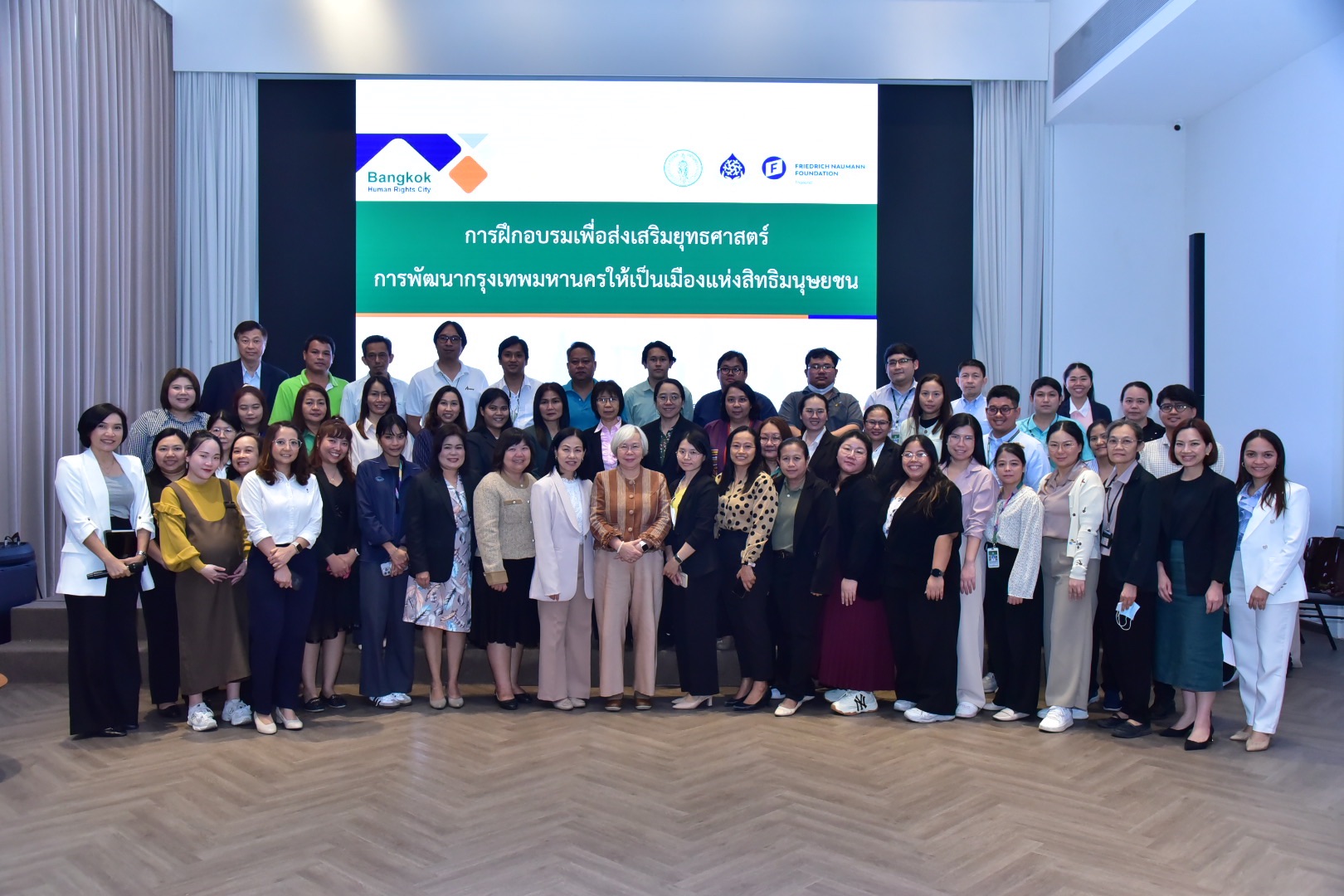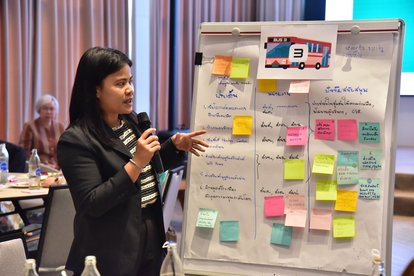Human Rights City
Another Step for Bangkok Towards Human Rights

Bangkok Human Rights City training Bangkok Human Rights City training
© NHRCTSince 2022, the Bangkok Metropolitan Administration (BMA) has been actively promoting the concept of a “Livable City for All.” The city has already introduced a range of policies aimed at improving residents’ quality of life, including enhancing public transportation, upgrading sidewalks, and providing accessible healthcare.
On 2 April 2025, FNF Thailand, in collaboration with BMA, the Office of the National Human Rights Commission of Thailand (NHRCT), and the Raoul Wallenberg Institute of Human Rights and Humanitarian Law (RWI), organized a training program to prepare Bangkok officials to be familiar with human rights concept and integrate human rights principles into their work. The seminar took place at the Western Chatuchak Hotel in the heart of Bangkok and welcomed over 50 participants from various BMA departments.
The seminar opened with a lecture by Ms. Hansa Homhual, Secretary-General of the NHRCT, who spoke about the core principles of human rights and shared case studies. She was followed by Ms. Thunpicha Greigarn from RWI, who presented models of Human Rights Cities from other countries. Dr. Pimrapaat Dusadeeisariyakul, Project Manager at FNF Thailand, then highlighted similar models in Thailand. The lecture session concluded with Dr. Seri Nonthasoot, a human rights expert, who discussed strategies for guiding Bangkok toward becoming a Human Rights City.
Identifying Human Rights issues in Bangkok
The seminar then moved into a workshop session. The participants were divided into eight groups based on their roles and areas of responsibilities. They were asked to brainstorm and respond to three key questions:
- What are the five most urgent human rights issues in Bangkok?
- Which agencies are involved in addressing these issues?
- What are the enabling factors for driving change?
The discussion topics included administration and governance, traffic and urban planning, the economy, environment and public safety, infrastructure, education, social and cultural issues, and public health. The participants identified pressing human rights issues, such as the high cost of living, air pollution, and access to healthcare, drawing from their work and firsthand experiences.

Participant presenting their discussion
© NHRCTThe workshop encouraged the participants to explore key issues, identify stakeholders, and discuss factors that support progress. They agreed that BMA agencies can play a direct role in tackling these challenges, but must also collaborate with central government agencies and other sectors in some issues. Budgetary support and public backing were recognized as essential for driving a meaningful change.
This seminar is part of BMA’s preparation to become a “Human Rights City for all”. Two more training sessions for BMA officials are planned, with the aim that Bangkok will incorporate human rights principles in their future work. FNF Thailand is proud to support Bangkok’s journey toward becoming a Human Rights City.
* Takdanai Ketkaew is Programme Assistant and Communication Officer at FNF Thailand.
